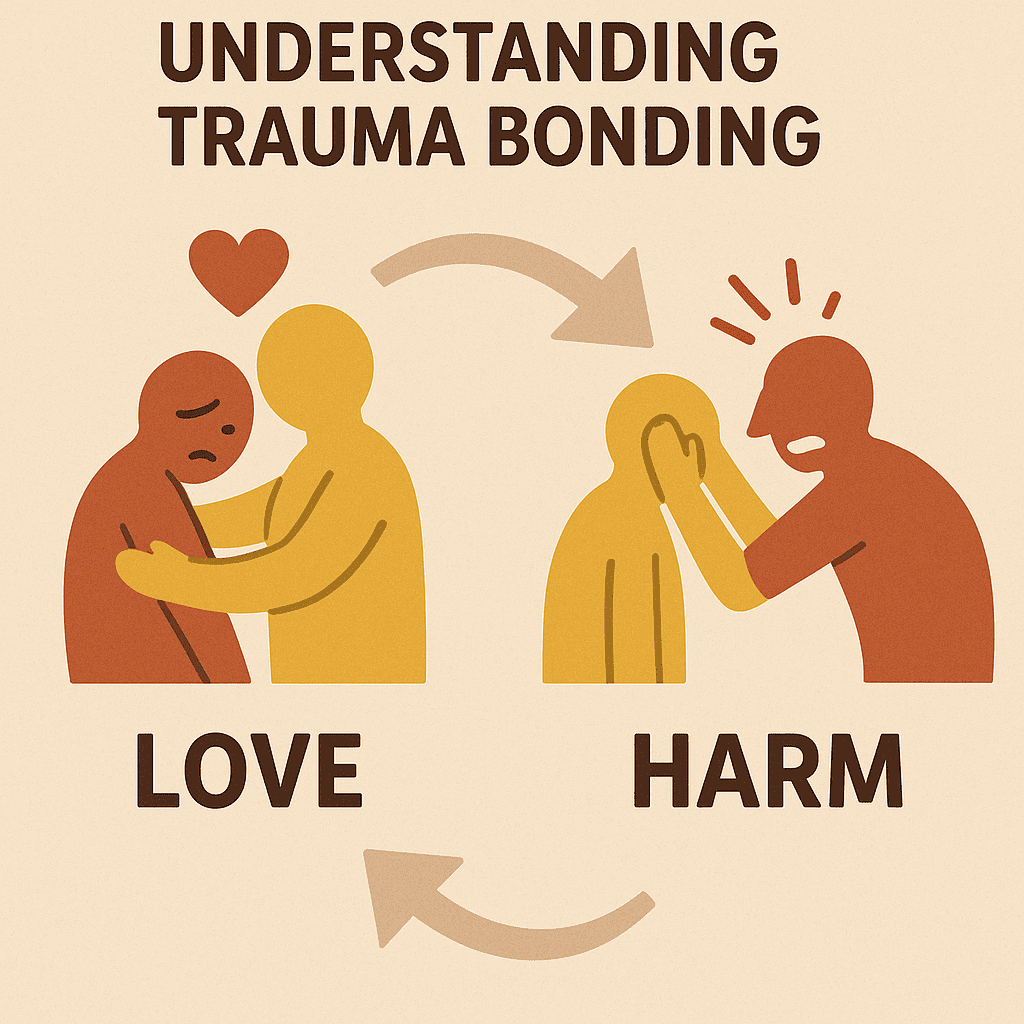
Ever found yourself defending someone who treated you terribly? Or felt oddly loyal to a person who hurt you, then hugged you, then hurt you again? You’re not alone, and no, you’re not daft either. Welcome to the strange and sticky world of trauma bonding.
At its core, trauma bonding is what happens when love and harm get tangled up like fairy lights in a drawer. It’s common in abusive relationships, toxic families, or situations where safety is promised with one hand and snatched away with the other. But this isn’t about being weak, foolish, or addicted to drama. It’s about survival. And if your early life taught you that love often comes with a side of fear, your nervous system might still be operating by those rules even if your adult self knows better.
How These Bonds Sneak Up on Us
Picture a child who gets cuddles one minute and cold shoulders the next. It’s confusing, sure, but the child learns to stay close anyway, because connection means safety, and safety (even unreliable safety) is better than nothing. That early confusion doesn’t just disappear when we grow up. It goes underground. Then, when we meet someone who’s warm one moment and cruel the next, part of us whispers: Ah yes, this feels familiar. This must be love.
The brain, ever the loyal protector, tries to make sense of it all by splitting the person into two categories: the ‘good’ them (when they’re nice) and the ‘bad’ them (when they’re not). And because the good bits offer fleeting relief, we cling to them like a cat to a radiator in January. It’s not that we don’t see the harm, it’s that the kindness feels like oxygen, and the pain becomes the price of breathing.
Who’s Most Likely to Get Caught in the Loop?
Trauma bonds tend to grow in people who’ve had patchy or painful relationships in early life. If your caregivers were inconsistent, neglectful, or frightening, your internal compass for love might’ve grown a little wonky. You might seek out what’s familiar rather than what’s kind, because your body says this is how love feels, even if your brain says run.
People with low self-worth, or those who’ve been told (explicitly or otherwise) that they’re too much, not enough, or hard to love, are particularly vulnerable. So are those who are isolated. Abuse thrives in secrecy, and when there’s no one around to say hang on a minute, this isn’t okay, it’s easier to stay stuck.
So, How Do We Untangle Ourselves?
Leaving a trauma bond isn’t just a matter of packing a bag and walking out the door. If only. It takes time, gentleness, and often a good dollop of support. Here’s what can help:
- Learning What’s Really Going On
Understanding trauma bonding can feel like being handed a torch in a dark cave. You realise: Oh….it wasn’t love, it was survival. And with that, the self-blame starts to melt. - Listening to the Body’s Wisdom
The body is no fool. It tenses around danger long before the mind catches up. Learning to notice how you feel in your skin – not just in your head – can be a powerful guide. Sometimes your gut knows what your heart’s still negotiating. - Finding New Ways to Attach
Healing doesn’t happen in a vacuum. Whether it’s therapy, a support group, or one good friend who doesn’t flinch when you’re honest, safe relationships help rewrite the old scripts. They show us that love can be steady, respectful, and imagine this….kind. - Letting Go of the Dream
One of the hardest parts of leaving is grieving the relationship you hoped it would be. One of the hardest parts of leaving is grieving the relationship you hoped it would be. That fantasy version can be incredibly hard to let go of. But mourning that dream, with compassion, not shame, helps loosen the emotional glue that’s been holding everything in place
You’re Not Broken – You’re Adapting
It’s not easy. Healing is rarely tidy. But if you’ve been caught in a trauma bond, it’s not because you’re foolish or flawed. It’s because, once upon a time, this way of relating helped you survive. The good news? You can learn new ways of being. It’s never too late to choose connection without fear.
You deserved safety then, and you deserve it now. No ifs, no buts.
If you are feeling stuck in painful relationship patterns, trauma-informed therapy in Bromley with Samantha Merry can help you understand and heal.